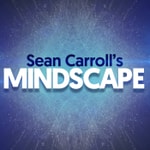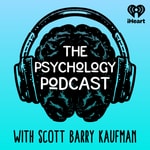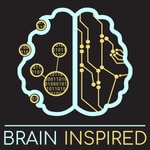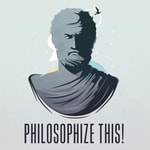Walden Pod – Details, episodes & analysis
Podcast details
Technical and general information from the podcast's RSS feed.

Walden Pod
Emerson Green
Frequency: 1 episode/21d. Total Eps: 96

Recent rankings
Latest chart positions across Apple Podcasts and Spotify rankings.
Apple Podcasts
🇨🇦 Canada - philosophy
01/04/2025#100🇨🇦 Canada - philosophy
31/03/2025#86🇬🇧 Great Britain - philosophy
12/02/2025#80🇨🇦 Canada - philosophy
22/12/2024#70🇨🇦 Canada - philosophy
29/09/2024#95🇨🇦 Canada - philosophy
28/09/2024#70🇨🇦 Canada - philosophy
04/09/2024#84
Spotify
No recent rankings available
Shared links between episodes and podcasts
Links found in episode descriptions and other podcasts that share them.
See all- https://voidpod.com/
546 shares
- https://0gphilosophy.libsyn.com/
421 shares
RSS feed quality and score
Technical evaluation of the podcast's RSS feed quality and structure.
See allScore global : 38%
Publication history
Monthly episode publishing history over the past years.
74 - Return of the Zombies: Phenomenal Transparency
lundi 12 août 2024 • Duration 22:26
Linktree
73 - Zombie Argument Against Physicalism
jeudi 8 août 2024 • Duration 40:31
Linktree
66 - Wittgensteinian View of Concepts (The Failure of Analysis)
vendredi 30 juin 2023 • Duration 14:42
The Wittgensteinian view of concepts explains how it’s possible that we know how to competently use terms even though it is so hard to successfully analyze them. I can’t provide a perfect conceptual analysis of knowledge (no one can), and yet I have no issue using the term and understanding what it means. Not only can I competently use words that I can’t analyze, I can reject proposed analyses as insufficient, like the justified true belief analysis. That’s because I understand the meaning of the concept, despite the fact that I can’t define it.
“Indefinability of words is perfectly normal," Huemer argues, "since understanding is not constituted by knowledge of definitions. The best way to convey a word’s meaning is through examples.”
Language & Meaning: Crash Course Philosophy
Understanding Knowledge - Michael Huemer
Linktree
One note from Huemer on the Wittgensteinian view of concepts and the contrasting Lockean view: "I think what I have to say about concepts is like some stuff that Wittgenstein said, but I don’t actually care how well it matches Wittgenstein’s views. I also don’t care, by the way, whether the 'Lockean theory' matches Locke’s views. You have to add in caveats like this whenever you mention a major philosophical figure, because there are always people who have devoted their lives to studying that figure and who, if you let them, will give you all sorts of arguments that the famous philosopher has been completely misunderstood and never really said the things they’re famous for saying."
65 - The Defeasibility Theory: What is Knowledge?
mercredi 28 juin 2023 • Duration 15:01
For even more epistemology, check out the new series on Counter Apologetics about mistakes atheists often make about epistemology.
Understanding Knowledge - Michael Huemer
Linktree
The Hypothesis of Indifference - Breaking the Binary
mercredi 21 juin 2023 • Duration 28:14
For reference, Paul Draper (1989) characterizes the hypothesis of indifference as follows: “neither the nature nor the condition of sentient beings on earth is the result of benevolent or malevolent actions performed by non-human persons.”
If the audio sounds different than usual, that's because I recorded this as a video and edited it slightly differently as a result. You can watch the video on YouTube here
Check out the series on atheism and epistemology over on Counter Apologetics here
Linktree
64 - Internalism: The Nature of Justification
mercredi 17 mai 2023 • Duration 18:47
Today, we're discussing internalism vs. externalism about knowledge and justification. We also touch on the person-based nature of justification, giving others the benefit of the doubt, and empathy on the epistemic landscape.
Understanding Knowledge - Michael Huemer
Linktree
Veganism & Metaethics w/ Perspective Philosophy
jeudi 27 avril 2023 • Duration 45:37
Full interview here
Linktree
63 - How can panpsychists sleep?
mercredi 8 mars 2023 • Duration 17:55
YouTube
Consider supporting the show on Patreon here or Counter Apologetics here
Listen to our sister show, Counter Apologetics here
Transcript
Twitter @waldenpod @OnPanpsychism
linktr.ee/emersongreen
62 - What's the Best Explanation of Psychophysical Harmony? w/ Philip Goff & Dustin Crummett
jeudi 23 février 2023 • Duration 01:53:42
Subscribe on YouTube
Twitter @waldenpod @Philip_Goff @dustin_crummett
Dustin's Channel
Mind Chat
Music by ichika Nito & Whalers. Used with permission.
linktr.ee/emersongreen
61 - The Vagueness Argument Against Physicalism
mardi 20 décembre 2022 • Duration 25:42
Michael Tye - Vagueness and the Evolution of Consciousness
David Papineau’s review of Vagueness and the Evolution of Consciousness in NDPR
Nino Kadic - Phenomenology of Fundamental Reality
YouTube
Listen to our sister show, Counter Apologetics here
Support at patreon.com/counter or patreon.com/waldenpod
Music by ichika Nito and used with permission.
Transcript
Twitter @waldenpod @OnPanpsychism
linktr.ee/emersongreen
/ timestamps /
00:00 The vagueness argument
04:18 Which creatures are conscious?
06:18 The sharpness of consciousness
10:09 The vagueness of biological phenomena
12:41 The sharpness of consciousness (cont.)
20:14 Weak emergence
21:42 The advantage of vagueness arguments









